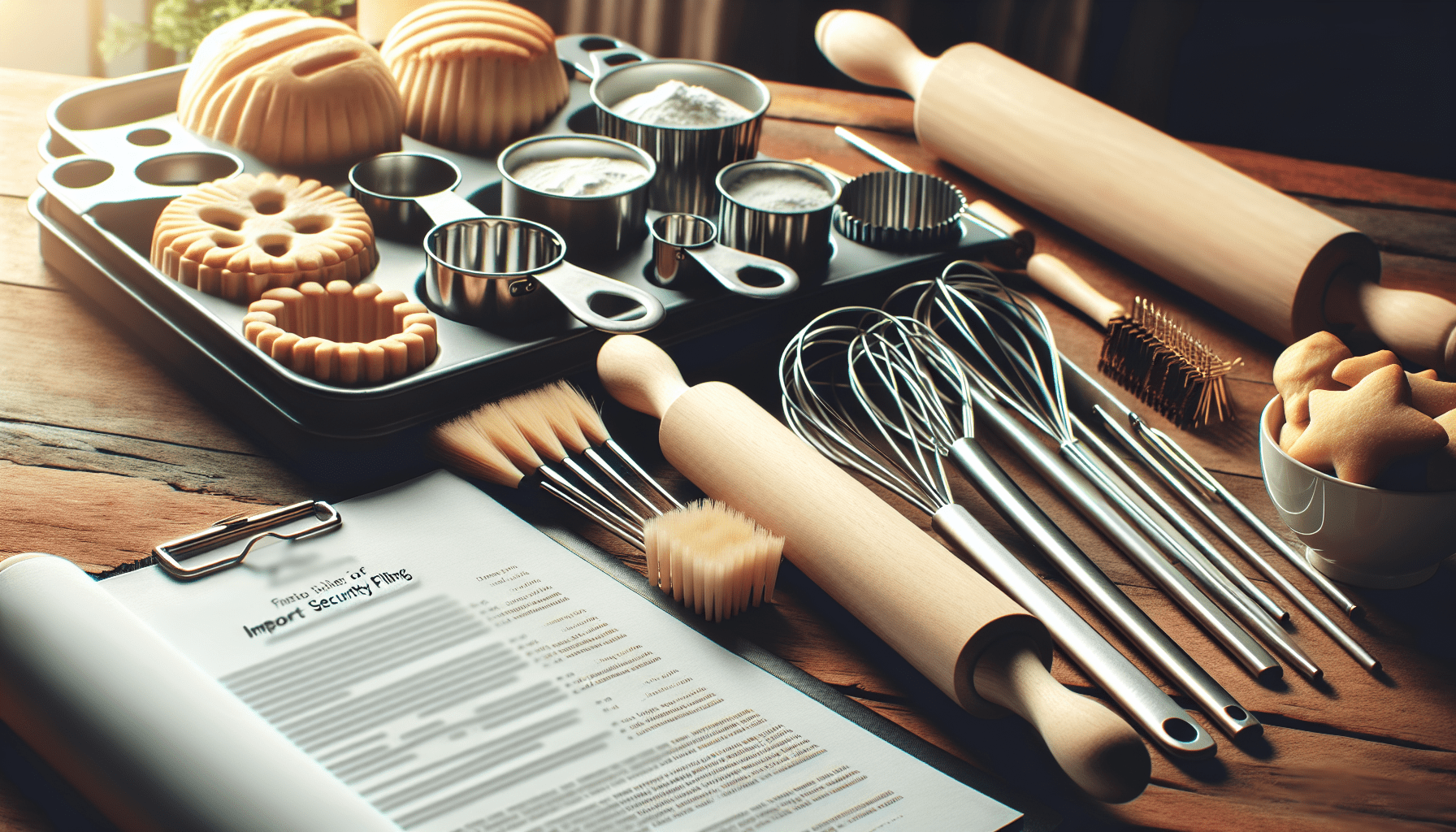How And When To File ISF For Baking & Pastry Tools
How And When To File ISF For Baking & Pastry Tools
So you’ve decided to import some baking and pastry tools for your bakery or pastry shop. But, you’re not sure how and when to file an Importer Security Filing (ISF) for these items. Well, you’ve come to the right place! In this article, we’ll guide you through the process of filing ISF for baking and pastry tools and help you understand the importance of doing it correctly and on time.

What is an Importer Security Filing (ISF)?
First things first, let’s talk about what an Importer Security Filing (ISF) is. An ISF is a document that importers or their agents are required to file with U.S. Customs and Border Protection (CBP) before their goods are loaded on a vessel destined for the United States. The purpose of the ISF is to provide CBP with advance information about the contents of the shipment to enhance border security and improve risk assessment.
So, when you’re importing baking and pastry tools, you’ll need to file an ISF to ensure smooth processing of your goods once they arrive in the U.S.
Why is ISF Important for Baking & Pastry Tools?
Now you might be wondering, why is filing an ISF important for baking and pastry tools? Well, for starters, failing to file an ISF or filing an incomplete or inaccurate ISF can lead to penalties, delays, and even cargo holds by CBP. By filing an accurate and timely ISF, you’re not only complying with CBP regulations but also ensuring that your goods move smoothly through the customs process.
So, it’s essential to understand the importance of ISF and make sure you file it correctly for your baking and pastry tools.
When Should You File ISF for Baking & Pastry Tools?
Now that you know what an ISF is and why it’s important, let’s talk about when you should file an ISF for your baking and pastry tools. The deadline for filing an ISF is no later than 24 hours before the goods are loaded on the vessel at the foreign port. However, it’s recommended to file the ISF as early as possible to avoid any last-minute hiccups.
Advance Filing Options
There are two options for filing an ISF in advance:
Before the Goods Are Loaded: You can file the ISF before your goods are loaded on the vessel at the foreign port. This is the recommended option as it allows CBP to review the information and address any issues before the goods depart.
At Least 24 Hours Before the Goods Are Loaded: If you’re unable to file the ISF before the goods are loaded, you must file it at least 24 hours before the goods are loaded on the vessel. This option is available in case of unforeseen circumstances.
So, make sure to plan ahead and file the ISF for your baking and pastry tools in advance to avoid any delays or penalties.

How to File ISF for Baking & Pastry Tools
Now that you know when to file the ISF, let’s talk about how you can file the ISF for your baking and pastry tools. Filing the ISF involves providing CBP with information about the shipment, including details about the importer, the seller, the buyer, and the goods being imported.
Information Required for ISF Filing
When filing the ISF for your baking and pastry tools, you’ll need to provide the following information:
- Importer of Record Number: This is the number assigned by CBP to the importer of record.
- Seller/Supplier Information: Details about the seller or supplier of the goods.
- Buyer Information: Details about the buyer of the goods.
- Supplier Manufacturer Information: Details about the manufacturer of the goods.
- Country of Origin: The country where the goods were manufactured.
- Manufacturer HTS Code: The Harmonized Tariff Schedule (HTS) code of the manufacturer.
- Container Stuffing Location: The location where the container was loaded.
- Consolidator: If the goods are consolidated, details about the consolidator.
- Bill of Lading Number: The number assigned to the bill of lading.
Filing Options
You have several options for filing the ISF for your baking and pastry tools:
- Self-Filing: You can file the ISF yourself through the Automated Broker Interface (ABI) or the ACE Secure Data Portal.
- Customs Broker: You can hire a licensed customs broker to file the ISF on your behalf.
- Freight Forwarder: Your freight forwarder may offer ISF filing services as part of their package.
Choose the option that works best for you based on your experience and resources.
Common Mistakes to Avoid When Filing ISF for Baking & Pastry Tools
Now that you know how to file the ISF for your baking and pastry tools, let’s discuss some common mistakes to avoid when filing the ISF. Making mistakes in the ISF can lead to penalties, delays, and other issues, so it’s essential to file it correctly.
Incomplete or Inaccurate Information
One of the most common mistakes when filing an ISF is providing incomplete or inaccurate information. Make sure to double-check all the information you provide to CBP to ensure its accuracy and completeness. Any discrepancies can lead to penalties or delays in the customs process.
Missing the Deadline
Another common mistake is missing the deadline for filing the ISF. Remember, the deadline is 24 hours before the goods are loaded on the vessel. Make sure to plan ahead and file the ISF in advance to avoid any last-minute rush or issues.
Failure to Update Changes
If any information in your ISF changes after filing, such as a change in the buyer or the supplier, make sure to update the ISF with the correct information. Failure to update changes can lead to discrepancies and potential penalties.
So, make sure to avoid these common mistakes when filing the ISF for your baking and pastry tools to ensure a smooth customs process.
Conclusion
Filing an Importer Security Filing (ISF) for your baking and pastry tools is a crucial step in the import process. By understanding what an ISF is, why it’s important, and how and when to file it, you can ensure the smooth processing of your goods through customs. Remember to provide accurate and complete information, file the ISF in advance, and avoid common mistakes to prevent penalties and delays. So, go ahead and file your ISF for your baking and pastry tools with confidence!
